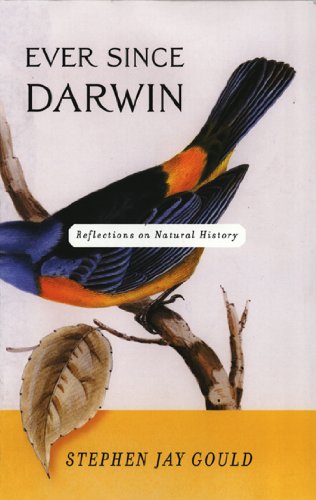Armchair naturalists, have we got some great books for you!
Owls Aren’t Wise & Bats Aren’t Blind: A Naturalist Debunks Our Favorite Fallacies About Wildlife (4.5/5 stars, currently priced at $11.84)
Did you know that “flying” squirrels are incapable of true flight? Were you aware that opossums don’t “play dead,” as in the common folk saying “playing possum”? In this fascinating and gorgeously illustrated new book, wildlife expert and enthusiast Warner Shedd, former executive for the National Wildlife Federation, uncovers the scientific realities obscured by our numerous long-held misconceptions of wild animals. Setting the most tenacious of these age-old superstitions against evidence that he and other biologists and naturalists have gleaned from careful observation and investigation, Shedd refutes such popular myths as beavers can fell trees in a desired direction, gray squirrels remember where they bury nuts, wolves howl at the moon, and cougars are an endangered species.
In addition to dispelling misinformation, Owls Aren’t Wise & Bats Aren’t Blind presents some fascinating facts about the animals that many of us encounter in our own backyards or walking across the road as we drive in our cars. For instance, did you know that a porcupine is actually a large rodent, and that its protective quills are really specialized hairs numbering about 30,000 per animal? That means that a typical porcupine has about 140 quills per square inch!
Shedd also uses humorous anecdotes to show us how funny (and educational) it can be when animals themselves defy our mistaken beliefs about them. Casting new light on the old tenet that ravens can be taught to mimic the human voice, Warner Shedd tells of a scientist who spent six years teaching a raven to cry “nevermore,” after the haunting raven in the famous Edgar Allan Poe poem. Shedd further explains that recent research indicates that ravens only mimic if they have the desire to do so.
This Is Not a Weasel: A Close Look at Nature’s Most Confusing Terms (5/5 stars, currently priced at $9.99)
How to tell a bison from a buffalo-not to mention a yam from a sweet potato.
Here’s a book for anyone who’s ever wondered about the difference between a crayfish and a crawfish. Or a frog and a toad. Or a buzzard and a vulture. Animal taxonomy is not what you’d call an exact science, and the field is lousy with all sorts of confounding terms.
In this entertaining, highly useful reference, Philip Mortenson takes on a wide-ranging list of monikers, from plants to higher mammals. Reviewed by an impressive cadre of experts, the book lays to rest any lingering confusion over the distinctions between seemingly related-yet crucially distinct-terms, such as mushroom and toadstool; moss and lichen; crocodile and alligator; skate and ray; turtle and tortoise; and mink, sable, ferret, ermine, stoat, and weasel. Everyone from the language lover to the nature buff will be charmed by this book.
Philip B. Mortenson (Minneapolis, MN) studied the philosophy of science at the University of Minnesota.
Ever Since Darwin: Reflections in Natural History (4.5/5 stars, currently priced at $9.99)
Scientific insight and literary flair combine, in this collection of reflections where such topics as the importance and relevance of Darwinism, the question of size in nature and the bizarre sex life of a mushroom maggot are examined.
More than any other modern scientists, Stephen Jay Gould has opened up to millions the wonders of evolutionary biology. His genius as an essayist lies in his unmatched ability to use his knowledge of the world, including popular culture, to illuminate the realm of science.
Ever Since Darwin, Stephen Jay Gould’s first book, has sold more than a quarter of a million copies. Like all succeeding collections by this unique writer, it brings the art of the scientific essay to unparalleled heights.
The Wild Life of Our Bodies: Predators, Parasites, and Partners That Shape Who We Are Today (4.5/5 stars, currently priced at $9.99)
Biologist Rob Dunn reveals the crucial influence that other species have upon our health, our well-being, and our world in The Wild Life of Our Bodies—–a fascinating tour through the hidden truths of nature and codependence.
Dunn illuminates the nuanced, often imperceptible relationships that exist between homo sapiens and other species, relationships that underpin humanity’s ability to thrive and prosper in every circumstance.
Readers of Michael Pollan’s The Omnivore’s Dilemma will be enthralled by Dunn’s powerful, lucid exploration of the role that humankind plays within the greater web of life on Earth.
The Violinist’s Thumb: And Other Lost Tales of Love, War, and Genius, as Written by Our Genetic Code (4.5/5 stars, currently priced at $9.99)
From New York Times bestselling author Sam Kean comes more incredible stories of science, history, language, and music, as told by our own DNA.
In The Disappearing Spoon, bestselling author Sam Kean unlocked the mysteries of the periodic table. In THE VIOLINIST’S THUMB, he explores the wonders of the magical building block of life: DNA.
There are genes to explain crazy cat ladies, why other people have no fingerprints, and why some people survive nuclear bombs. Genes illuminate everything from JFK’s bronze skin (it wasn’t a tan) to Einstein’s genius. They prove that Neanderthals and humans bred thousands of years more recently than any of us would feel comfortable thinking. They can even allow some people, because of the exceptional flexibility of their thumbs and fingers, to become truly singular violinists.
Kean’s vibrant storytelling once again makes science entertaining, explaining human history and whimsy while showing how DNA will influence our species’ future.





